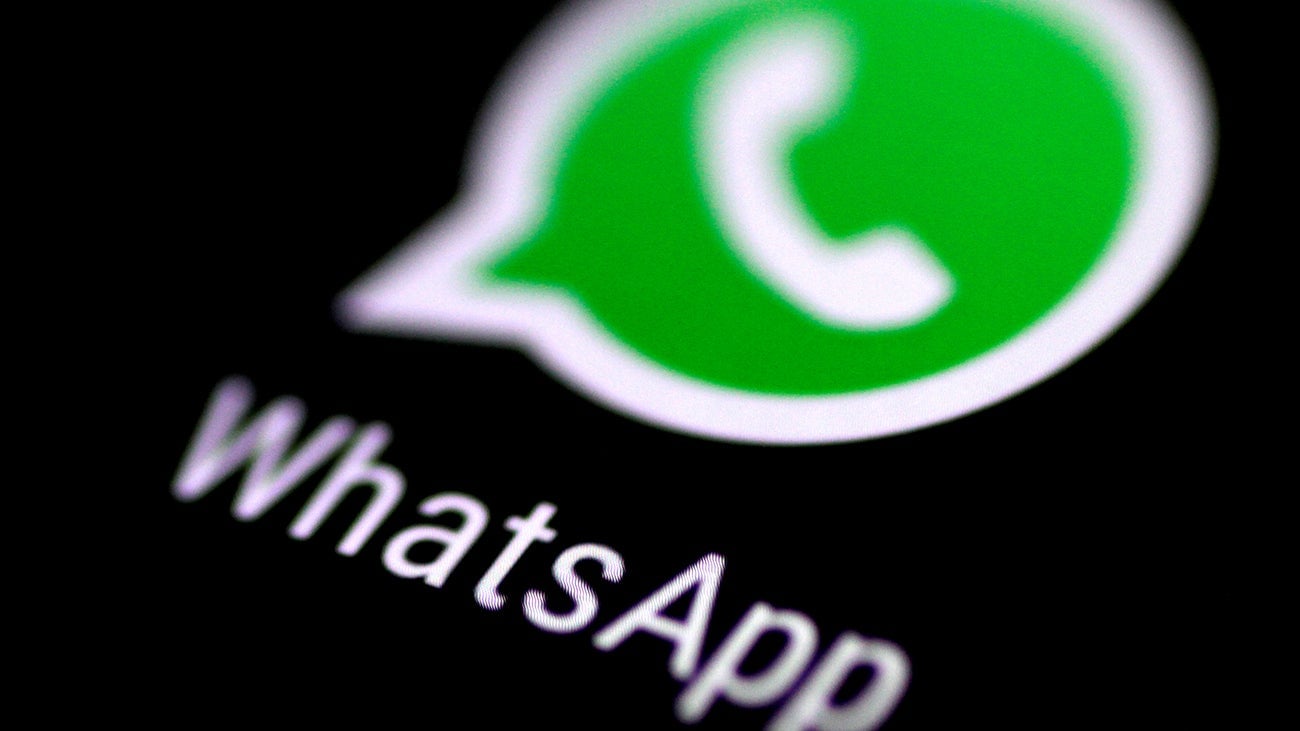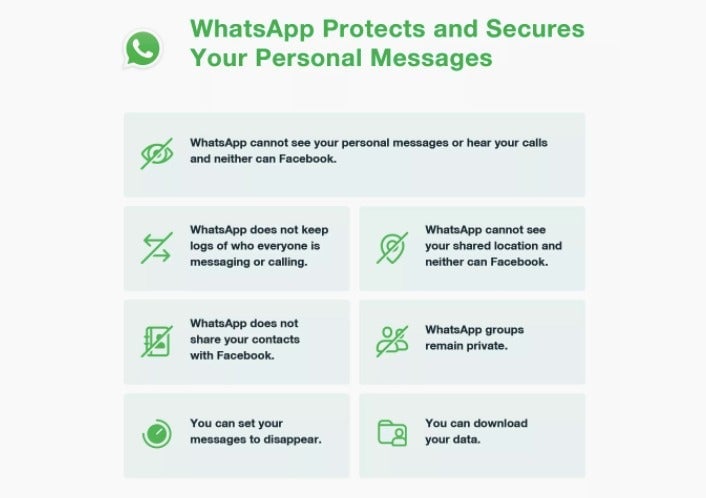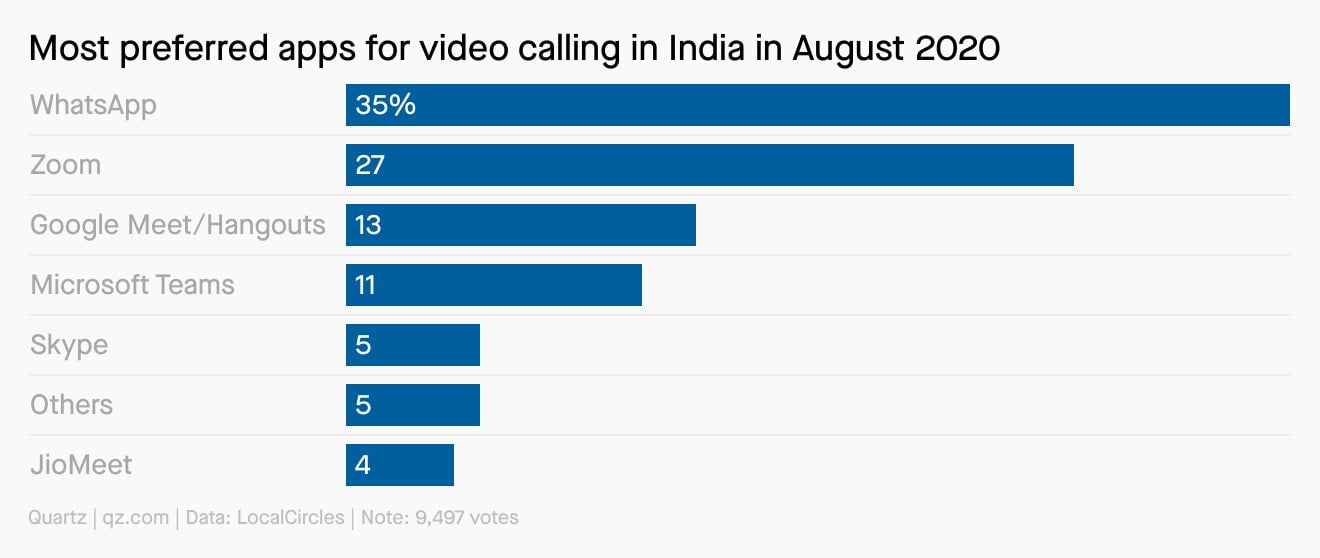For members—What WhatsApp is facing in India
Hi Quartz member,


Hi Quartz member,
On Feb. 25, the Indian government released new social media guidelines that allow it to exercise more control over platforms like WhatsApp, including by requiring those platforms to take swift action on government takedown requests, appoint compliance and grievance officers, and identify the originator of problematic messages. The new rules, ostensibly geared at “protecting users’ privacy” in India, are also the latest salvo in government attempts to wrest control over speech online. Caught in the middle are WhatsApp’s 530 million local users.
But first, a recap: The CDC released guidelines for the vaccinated, China made Hong Kong’s elections more authoritarian, and Britons are reeling from all the drug ads aired during Oprah’s Harry and Meghan interview. Nike and Adidas are locked in a digital arms race, and everyone is hyping “buy now pay later.” What is the microbubble economy? Can Bitcoin ever really be green? How much would you pay for a virtual sofa? We answered the first two; the third is up to you.
Your most-read story this week: How the rocket business launched a wave of blank check companies. And most relatable member goes to whoever is reading The guide to deleting your dating profile. (Points for optimism.) If you haven’t yet, please take this three-minute survey to improve the Quartz experience. It includes a chance to win a $100 Visa gift card—perfect for that first blind date back.
Okay, let’s unlock our phones and talk about WhatsApp in India.
How did we get here?
The February guidelines aren’t even the first time this year that Facebook-owned WhatsApp has faced privacy concerns in India. On Jan. 4, the messaging app unveiled a controversial new policy that furthered data-sharing with its parent company. WhatsApp will reserve the right to share data like phone numbers, IP addresses, and payments with Facebook’s broader network. Users cannot opt out.
WhatsApp was criticized by the public and India’s government for springing the update on its largest market with little notice, as users were expected to comply by Feb. 8 or lose all access. After intense backlash, the app pushed the rollout date to May 15.
Since then, WhatsApp has been on a PR mission to allay concerns about what is being shared with Facebook. Through blog posts and full-page newspaper ads, it’s emphasizing that the data-sharing policy doesn’t apply to private chats, voice, or video calls, and only pertains to business messaging. (An “official business account” vetted by WhatsApp has a green tick badge. Users can block or report business accounts.)

Facebook’s response has not appeased the government, which continues to push WhatsApp to walk back the policy update entirely.
Amid this back-and-forth, a New Delhi-based digital rights group last month filed a lawsuit in the Supreme Court, arguing that WhatsApp’s policy update threatens the privacy of Indian users. Sareen also said India is unfairly held to different privacy laws than Europe; WhatsApp responded that Europe has unique data laws to which India and the rest of the world aren’t beholden.
Experts admit there is a regulatory vacuum around data privacy and protection in India. But “whether a law is there or not,” India solicitor general Tushar Mehta said in court, “right to privacy is a fundamental right and it cannot be infringed or violated.”
47 million: WhatsApp downloads in India in February 2020, a record
21.3 hours: Average time Indian users spent on WhatsApp each month in 2020
15 million: WhatsApp Business users in India as of July 2020
2.3 million: Downloads of WhatsApp competitor Signal between Jan. 6 and Jan. 10, 2021 (Telegram, another competitor, was downloaded 1.5 million times over the same period.)
20 million: Indian users with access to WhatsApp Pay (The number of users is capped by the government to avoid a monopoly-like situation in the industry.)
11: Local Indian languages available on WhatsApp: English, Hindi, Bengali, Punjabi, Telugu, Marathi, Tamil, Urdu, Gujarati, Kannada, and Malayalam
20%: Share of rural Indians who said they use WhatsApp daily in 2018
Charting screen time

A tale of three quotes
“I see very few people being able to abandon their WhatsApp accounts given the huge networks across many categories that people have built up over time.” —Harish HV, managing partner at ECube Investment Advisors
~~~
“Most of the ‘world around’ is on WhatsApp, including vendors, businesses, and delivery men asking for locations.” —Independent public policy analyst Prasanto K Roy
~~~
“Be it WhatsApp or any other digital platform, you are free to do business in India, but do it in a manner without infringing upon the rights of Indians… [the] sanctity of personal communication needs to be maintained.” —IT minister Ravi Shankar Prasad
WhatsApp means business
With hundreds of millions of active users in India, WhatsApp is playing a crucial role in the development of local e-commerce. Here are some FYIs to keep in mind:
- Globally, about 175 million people message a business account each day on WhatsApp.
- During the pandemic, WhatsApp became a lifeline for many small businesses.
- WhatsApp Business is fueling e-commerce beyond India’s urban centers.
- After Facebook invested $5.7 billion in digital services giant Jio Platforms, grocery subsidiary JioMart partnered with WhatsApp to fulfill orders from local kirana stores.
- In mid-2020, WhatsApp Business introduced new features such as catalog links, QR codes, and sticker packs. In November, WhatsApp Pay got the regulatory green light.
What to watch for
⚖️ WhatsApp’s next Supreme Court hearing is March 19, and if the court’s February statements are any indication, things are looking grim for the app. There’s plenty of precedent for India pushing back on Big Tech: In 2016, its Telecom Regulatory Authority banned Facebook’s Free Basics offering over net-neutrality concerns, and last year India banned Chinese video app TikTok over data-sharing. Already, privacy activists are vying for a WhatsApp ban.
🛡️ Whether or not the decision swings in WhatsApp’s favor, one thing is clear: Gaping holes in India’s data protection laws have been exposed, and the country needs to bolster and implement better legislation ASAP.
🔒 Even if WhatsApp dodges the privacy bullet, India’s most recent social media rules pose a new set of problems. How will WhatsApp navigate the government’s tall asks while maintaining the sanctity of end-to-end encryption?
🇮🇳 Following a pattern of backing India-made versions of foreign companies’ apps, India’s government is also developing its own homegrown versions of WhatsApp.
Hike takes a hike
Despite its challenges, WhatsApp is still a force in India. Perhaps the only homegrown app that could have rivaled its clout was Hike Messenger.
Founded in 2012 by Kavin Bharti Mittal—son of telecom scion Sunil Mittal—Hike was for years flush with funding. Back in 2014, the younger Mittal believed India would end up with two leading messaging apps. “One is simple messaging—WhatsApp would be that company—[and] the second is a much more rich form of messaging,” he told Quartz at the time. “We believe Hike is going to be the other one.”
Hike innovated rapidly, adding a wallet before WhatsApp and launching services that worked without a data plan. By 2016, it had amassed over 100 million users and joined the unicorn club. But growth stalled as WhatsApp gained popularity, and in 2018 Facebook stunted Hike’s marketing campaigns by blocking its ability to send users to its website via Facebook ads.
Eventually, Hike succumbed to the competition, and in January Mittal tweeted that “India won’t have its own messenger.” (He’s now working on a Facebook competitor.) Other made-in-India WhatsApp alternatives are waiting in the wings. But if a company like Hike can’t dethrone WhatsApp in India, can anyone?

Keep learning
- Are Signal and Telegram really hurting WhatsApp in India?
- Can WhatsApp protect user privacy and curb misinformation?
- What the world can learn from India about digital payments.
- An antitrust lawsuit in the US is foiling Facebook’s big plans for WhatsApp.
- Why Hike Messenger bowed out of India’s messaging wars.
- The Jio effect on Facebook and WhatsApp.
- India’s proposed data protection bill needs a lot of work.
Thanks for reading! And don’t hesitate to reach out with comments, questions, or companies you want to know more about.
Best wishes for a privacy-protected end to your week,